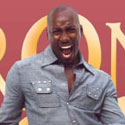
Front & Center: How I Learned to Live There
by Carlton Wilborn
Treelife Publishing
What began five years ago as an emotional outlet for Carlton Wilborn’s poetry has culminated in a candid tell-all about his journey from streetwise kid in Chicago teaching disco dance moves to rich kids uptown to sought-after dancer and choreographer on the international stage. He reveals so much here, there isn’t much left for the “untold story.” If you’ve ever wondered how a man’s faith in God coexists with his homosexuality, some of your curiosities may be resolved here.
After relocating to Los Angeles nearly 18 years ago, Wilborn was handpicked by Madonna to be one of her principle dancers during her Blond Ambition and Girlie Show world tours. He also appeared in her “Vogue” music video and “Truth or Dare” documentary, as well as in Janet Jackson’s “Love Will Never Do Without You” and “Escapade” music videos. Although not quite a household name, Wilborn has acted in a few memorable movies and television programs: Becker, CSI: Miami, The Practice, NYPD Blue and Dead Presidents. “I’ve had nice acting roles,” Wilborn once said, but lamented that he has yet “to lead the show.”
Front & Center reads like a story within a story that begins in the present, weaving in Wilborn’s troubled past. Each chapter ends with a poem that supports a coinciding theme Wilborn hopes readers will apply to their own lives. Through flashbacks (when Wilborn isn’t quoting adages, offering advice, or spewing mantras to coincide with his thoughts about Tyler Perry and Rev. T.D. Jakes, the latter two to the point of overkill), we learn his views on pop culture. But more pointedly, we’re given insight into his inability to hold healthy relationships, which in turn lead to his destructive behavior, and vice versa. Wilborn recovers by accepting his stacked odds and thriving beyond them (as exemplified in such poems as “Ferocious Faith”). “Accepting” is the operative word here because although Wilborn has overcome many odds, without giving too much away, there’s still a life-threatening straggler looming above him.
He doesn’t make it entirely clear why he grew up on the streets– whether he willingly chose it as a release for his adolescent rebelliousness or to escape a home life where both parents were unfaithful. “Between my Dad being an alcoholic, and him beating up my Mom and my older brother, Bobie, I learned to be guarded,” he reveals. Clearly, those same streets eventually helped define and steel him for things both good and bad to come.
His real troubles begin in 1978 when, after finding him too rambunctious as a preteen, his parents send him away to Florida to live with his aunts Rose and Georgene. There, every summer from the ages of eight to thirteen, he was molested by Aunt Georgene’s boyfriend’s son, a karate instructor. Factor in an older Wilborn’s taste for leading Oscar Wilde’s lascivious lifestyle, and you have a plot that reads eerily similar to Joseph Gordon Leavitt’s 2004 movie Mysterious Skin. In later years, he admits to relishing in some of those sex acts because at least the relationship provided him somewhat of a male role model in the absence of his father. And so rages on the debate of whether one is drawn innately to homosexuality.
Front & Center works best when Wilborn refrains from trying to write the book and instead lets the stories tell themselves. While the writing style isn’t exactly earthshaking, at times it is visceral. This is especially evident where he recounts the story of his Aunt Georgene beating him with a telephone cord for running her phone bill up to $17.00 while talking to his parents back home.
The increments of each release are actually felt as he gradually lets go of the years of guilt and shame of being molested; of longing for his father’s validation of him as a son and gay man; of the anger toward his mother for not saving him from his molester. Although Front & Center find its stride a third of the way through, it could have been even more persuasive had Wilborn been a more seasoned writer. Essentially, the book should have come to a close after Wilborn confronts and finally forgives the man who molested him. Still, when he’s really writing in his authentic voice (“‘Oh my goodness,’ I thought, ‘I’ve got to pray on this’”), his sweetness is worth some of the extra text.
As in Dennis Rodman’s biography Bad As I Wanna Be, the much ballyhooed “Madonna chapter” isn’t the most interesting. In this case, her role is downright inconsequential. Readers should find Wilborn’s story sufficiently interesting enough that we come to care and empathize with tribulations that hold their own. But, obviously, his connection to her awards him some extra publicity. We don’t learn, as we did in Rodman’s book, that Madonna’s no acrobat in bed. The dead fish reference begs the question otherwise. It’s a toss up, Wilborn finally concludes, as to who’s more aloof: The Material Girl or her entourage of assistants. If anything, the chapter reinforces the reality that despite attaining an initial break into Hollywood, one’s fifteen-minutes struggles don’t end. Wilborn may not yet have the career he wants, but that he learns, as his press release states, “to make peace with both his demons and his angels” is certainly better than any ending Hollywood could muster.
Treelife Publishing: http://www.treelifepublishing.com












